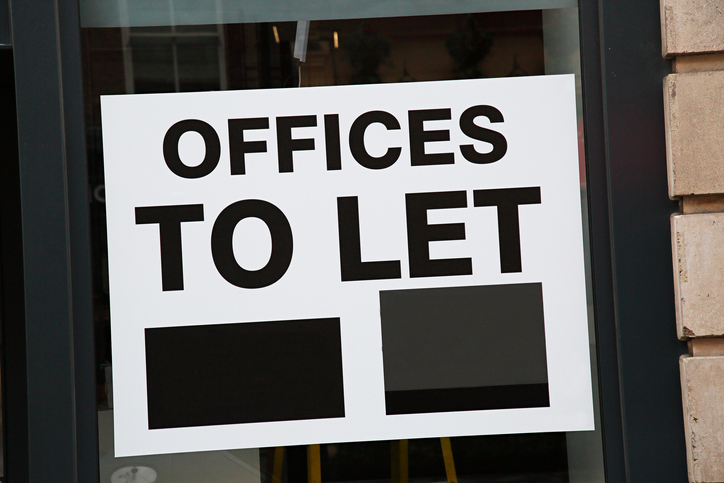From 1st September 2020 the Lease Code 2020 will officially supersede the Lease Code 2007.
The Royal Institution of Chartered Surveyors (RICS) has published a new Code for Leasing Business Premises in England and Wales, to be known as the Lease Code 2020 (referred to as the 2020 Code in this article). This Code, which replaces the Lease Code 2007 (the 2007 Code) will become effective from 1st September 2020 and is intended to apply to lettings of premises in England and Wales to tenants who will carry on trade, professional or other business activities in those premises. It will not, therefore, apply to agricultural lettings, buildings used only for housing plant and equipment or for lettings of 6 months or less.
The Code is intended to promote a fair and balanced approach between landlords and tenants. and to smooth the letting process.
In this article we compare the 2020 Code with the 2007 Code and highlight the key differences between the two.
- Change of status of the Code. The 2007 Code was a voluntary code; the RICS has now raised the status of the 2020 Code to a ‘professional statement’, which sets out requirements which RICS agents or landlords or other RICS members or regulated firms must adhere to. The Code is split into two sections – Part 2 contains the mandatory requirements relating to negotiations and heads of terms whilst the remainder of the Code is indicative of good practice (or “best practice” as used throughout the Code itself). Whilst this best practice is not mandatory, RICS members or regulated firms may be required to justify their actions and decisions. It is worth noting that the 2020 Code does not bind landlords who are not regulated by RICS but it may create difficulties if the landlord’s agent is a RICS member and so it will be interesting to see how this new Code manifests itself.
- Definition of premises. The 2020 Code gives more detail on how the premises are to be defined in leases; it is no longer sufficient to just have an address. Furthermore, where the lease will be registrable at the Land Registry (where granted for a term of 7 years of more, or where the term (of any length) takes effect more than 3 months in the future) the 2020 Code provides that a Land Registry compliant plan must be provided by the landlord. Also, details of the premises must now state which elements of the structure or the fabric are included within the demise. Whilst these would always be matters dealt with at the legal stage of a lease negotiation, this now provides tenants with more details of what they can expect the premises to comprise from an earlier stage.
- Break clauses. If the lease is to contain a break right the conditions applicable to any break should remain the same as under the 2007 Code, although there is now scope for the parties to agree stricter conditions if they so wish, provided that these are agreed at the ‘heads of terms’ stage. Further, there is now a requirement that the landlord will be required to reimburse the tenant for rent, service charge or insurance rent which is paid in advance for any period after the break date, although, in the case of service charge, repayment can be deferred until service charge accounts are finalised. Since the case of Marks and Spencer plc v BNP Paribas Securities Services Trust Company (Jersey) Ltd and another [2015] UKSC 72, an express provision providing for repayment of rent in these circumstances should be sought in any event, but enshrining this within the Code should mean that landlords and their lawyers will now not be able to try and avoid this repayment provision. This will particularly help protect those tenants who do not instruct lawyers when taking a new lease.
- Rent review. Headline rent review clauses (which only look at the rent payable after any rent-free periods) were previously not to be used, but pursuant to the 2020 Code, the caveat of ‘unless expressly agreed’ has been added. This therefore brings in some scope for such rent review clauses to be used. Additionally, in the 2007 Code a landlord had to explain to a tenant on request why it might not be able to offer alternatives to an upwards only rent review, this requirement on landlords has now been dropped.
- Authorised Guarantee Agreements (AGAs). The 2007 Code said that AGAs should not be required as a condition of an assignment unless the proposed assignee is of a lower financial standing than the assignor; the 2020 Code instead provides that the lease should provide that the assigning tenant is to provide an AGA if reasonably required by the landlord. The 2020 Code also states that tenants should try to negotiate provisions in leases which set out situations where an AGA is not required – for example, if the proposed assignee has sufficient financial strength, pays a rent deposit or otherwise provides a suitable guarantor. There is, therefore, scope for a tenant to agree in advance conditions where an AGA may not be reasonably sought by a landlord and it may not be as easy for a landlord to insist on an AGA in all circumstances.
- New to the 2020 Code are provisions which state that leases should allow tenants to grant a bank or other reputable lending institution a charge over the lease without the consent of the landlord. The only scenario where consent may be required would be if the lease contains step-in rights for mortgagees. Whilst it is rare to see short term commercial leases specifically charged anyway, this change to a lease removes the need to approach the landlord for consent, which currently is normally not to be unreasonably withheld or delayed in any event.
- Inherent defects – newly built properties. Also new to the 2020 Code are provisions which apply where the premises are or will be newly built; tenants should now expect to be given suitable protection against inherent construction defects for an appropriate period. This should apply whether the tenant is responsible for the repair directly or indirectly. There are several ways in which this protection can be given, and tenants should seek professional advice on which might be the most appropriate. Landlords should also prepare themselves for needing to provide this addition protection to tenants whether through defects insurance or warranties.
- In a slight deviation from the 2007 Code, the 2020 Code distinguishes between leases of whole and of part when considering the topic of alterations. In a letting of the whole a landlord should not normally prohibit or require consent to internal non-structural alterations that do not adversely affect the character, value, structural stability, statutory compliance or energy efficiency of the building. In a lease of part, however, a landlord may require that its consent is first given for internal non-structural alterations with such consent not to be unreasonably withheld or delayed. However, there may also be grounds to prohibit such alterations altogether if they would adversely affect the character, value, structural stability, statutory compliance or energy efficiency of the building.
- The 2007 Code recommended that schedules of dilapidations should be served at least 6 months before the end of the term (with any dilapidations arising in the last 6 months, to be notified as soon as practicable). Instead, the 2020 Code refers the parties to the Dilapidations Protocol. This protocol requires landlords to serve a schedule of dilapidations within a reasonable time after the end of the lease term, which would normally be not more than 56 days. Further, if a schedule of dilapidations is served before the termination date then the landlord should confirm that there are no changes to this schedule or otherwise send a further schedule within a reasonable time.
- Landlords will now need to ensure that their insurance provides terrorism cover where available, provided only that it must be available at reasonable rates. In the 2007 Code, such cover was only required where the same was ‘practicable’. This may mean that once this Code is in force landlords need to approach their insurers to potentially arrange terrorism coverage where their existing insurance does not already cover this. Further, the 2020 Code now also provides that not only do landlords need to disclose any commission that they might receive when insuring but they should also give the tenant the benefit of any premium discounts as well. For landlords who insure premises as part of a block policy, it may be more difficult to disclose the commission or pass on the discounts as the same may not be allocated to individual premises and thought needs to be given to how to overcome this.
If you would like further information on the Lease Code 2020, please contact a member of the Real Estate team.

